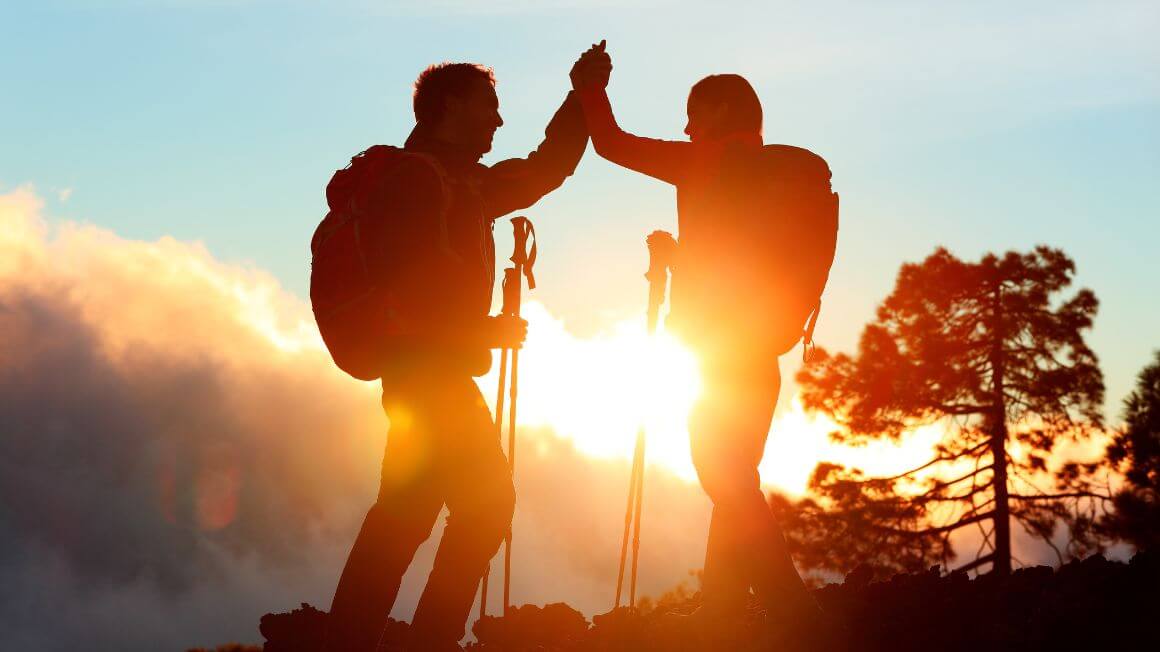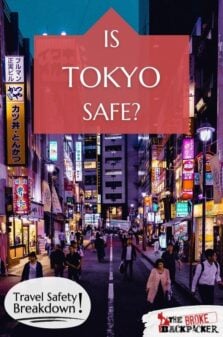The capital of Japan is an incredible city. A megalopolis of insane proportions, this truly is the home of bright lights and skyscrapers, underground shopping malls and multi-floor arcades, serene temples and quaint noodle bars – all connected by a spaghetti like network trains, roads and footpaths.
You’re going to have trouble deciding what to see and what to forgo in Tokyo, it really is an overwhelming experience for the senses from start to finish! But don’t let that distract you from staying safe! On the whole we’ve found Tokyo to be a super safe place to travel across our many visits.
In fact, aside from the odd scam in the “dodgier” areas of town, the main safety concerns you’ll have come from nature rather than other people. Things like earthquakes and typhoons for example might just shake you up!
Anybody not used to feeling tremors of any sort is probably going to be wondering, “Well, is Tokyo safe?” And we totally understand. Earthquakes are scary. As are shady bars! So we’ve created this epic insider’s guide into staying safe in Tokyo when you plan to visit.
We are going to be covering A LOT of subjects. From whether or not the food is safe to eat in Tokyo (ever heard of fugu?) to whether Tokyo’s safe for solo female travellers, and just about everything in between!
Luckily for you we’ve been there and done it so you don’t have to. Across our team of experienced globe trotters we’ve spent a fair bit of time in Tokyo. So we’ve got you covered.
Right, let’s get to it!

Unlock Our GREATEST Travel Secrets!
Sign up for our newsletter and get the best travel tips delivered right to your inbox.
How Safe is Tokyo? (Our take)
Travelling in Tokyo is super fun. It’s a megalopolis of truly epic proportions. It isn’t so much one city as a collection of different cities all rolled into one. Ikebukuro, Ginza, Shinjuku, Harajuku, Shibuya, Ueno… Each with a million and one things to do. It’s awesome!
Thankfully Tokyo is definitely one of the safest cities worldwide. But that doesn’t mean that it’s always safe. Like many cities in the world, there are sketchy areas that you want to avoid (more on that later). But on the whole, the city is incredibly safe for travellers and our team can back that experience up over a number of trips.
The main reason to be concerned is the many natural disasters that plague Japan as a whole. We’re talking about earthquakes & typhoons for example. That’s a legitimate concern for anybody travelling to Tokyo or around Japan.
Typhoons can hit – and hit HARD and earthquakes can leave you shaking in your boots!
Dangerous stuff in Tokyo doesn’t usually come in the form of people – it’s Mother Nature you’re going to have to worry about.
However, you were probably already thinking that the best places to visit in Tokyo were safe. And you would be right if you were. Tokyo IS safe. Super safe!
There is no such thing as a perfect safety guide, and this article is no different. The question of “Is Tokyo Safe?” will ALWAYS have a different answer depending on the parties involved. But this article is written for savvy travellers from the perspective of savvy travellers.
The information present in this safety guide was accurate at the time of writing, however, the world is a changeable place, now more than ever. Between the pandemic, ever-worsening cultural division, and a click-hungry media, it can be hard to maintain what is truth and what is sensationalism.
Here, you will find safety knowledge and advice for travelling Tokyo. It won’t be down to the wire cutting edge info on the most current events, but it is layered in the expertise of veteran travellers. If you use our guide, do your own research, and practise common sense, you will have a safe trip to Tokyo.
If you see any outdated information in this guide, we would really appreciate it if you could reach out in the comments below. We strive to provide the most relevant travel information on the web and always appreciate input from our readers (nicely, please!). Otherwise, thanks for your ear and stay safe!
It’s a wild world out there. But it’s pretty damn special too. 🙂
Is Tokyo Safe to Visit Right Now?
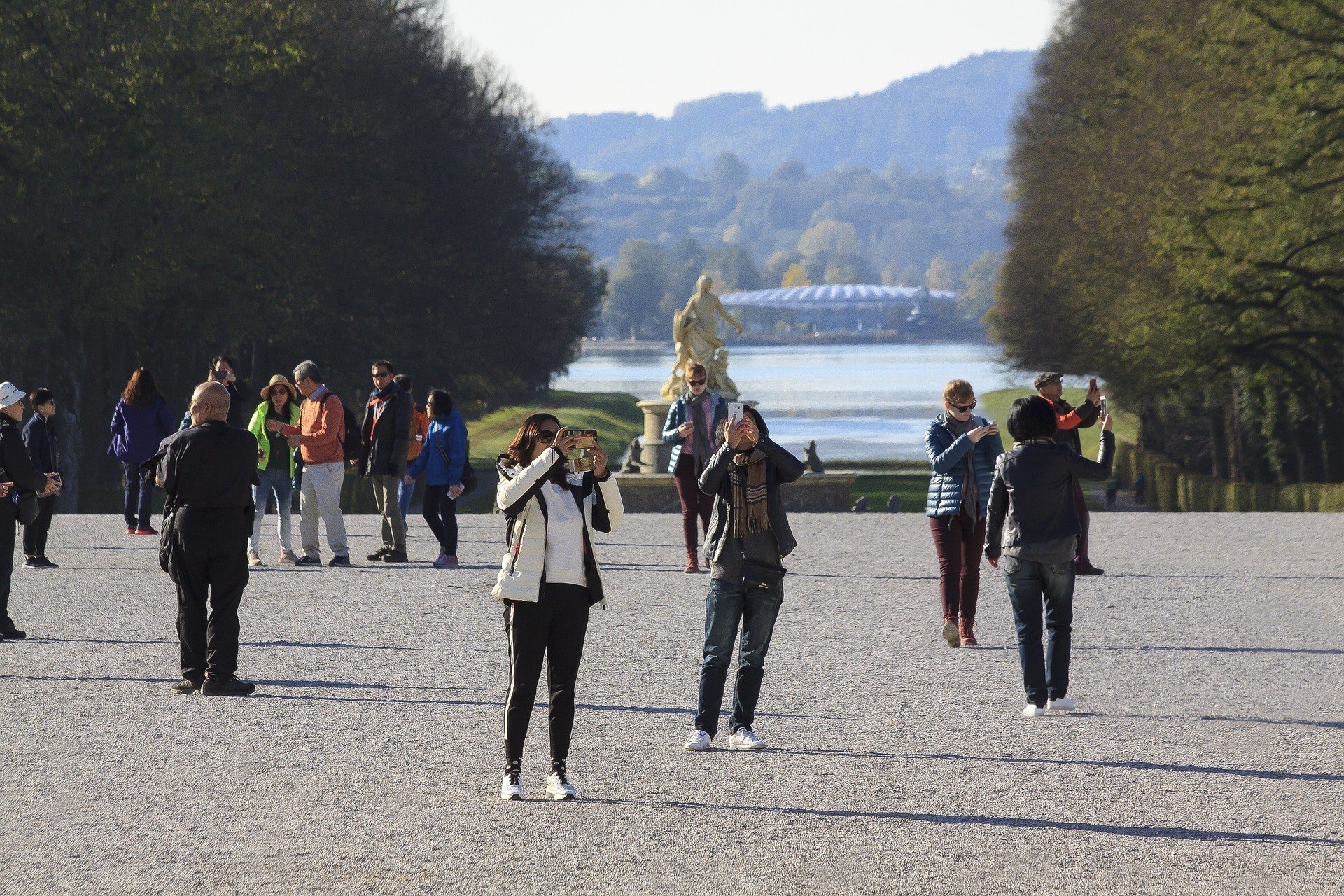
The Broke Backpacker is supported by you. Clicking through our links may earn us a small affiliate commission, and that's what allows us to keep producing free content 🙂 Learn more.
All of Tokyo’s areas and neighbourhoods are safe to visit right now. It’s super safe, in fact. Loads of other people think so, too… including us!
Tokyo itself played host to an estimated 51% of all international tourists to Japan. Some people never even make it out of Tokyo. And there’s a good reason for that: it’s AMAZING.
And when it comes to crime in Tokyo there’s a funny thing you’re about to learn: it’s often said there are too many police, not enough criminals. Isn’t that insane?
Across the 23 wards of Tokyo, there are around 40,000 criminal “incidents” per year. Most of those actually happen in Shinjuku. And a lot of them are to do with shoplifting, so it doesn’t even affect tourists. But in general? Yes, you’re going to be super safe in Tokyo.
Earthquakes can be brutal and come out of nowhere. While the local community knows how to protect themselves in the case of an earthquake, travellers are often clueless and more at risk of injuries. Unfortunately, you can’t 100% predict them. That’s just how earthquakes work. Thankfully though most of the buildings in the city are built to withstand a good shake.
There are also typhoons to worry about. Typhoon Trami, known in Japan as Typhoon No. 24, hit in October 2013 and took out electricity, stopped the trains working and left many people stranded. Rescue services are some of the best in the world in Tokyo though, so if something does happen, you know they’ve got the facilities to deal with it.
That being said. Plenty of our team, including me of course, have been to Tokyo on many different occasions and often for extended periods… and non of us has ever experienced any issues whether that be from natural disasters or fellow human beings. In fact, we’ve all universally experienced kindness and honesty from the locals. It’s a super refreshing place to visit!
In conclusion, there’s nothing pressing that’s going to keep you from Tokyo. Check the forecast for impending disasters, but otherwise, go for it!
Want to save money on your trip?
We got you. For reals.
Safest Places in Tokyo
When choosing where you’ll be staying in Tokyo, a bit of research and caution is essential. You don’t want to end up in a sketchy area and ruin your trip. To help you out, we’ve listed the safest areas to visit in Tokyo below.
Shinjuku
Shinjuku is a very famous neighborhood, and probably the most popular one amongst travellers and locals. Located in the central area of Tokyo, you’ve got pretty much perfect access to all of the other cool districts.
If you like to be right in the action, staying in Shinjuku is ideal. Skyscrapers make for a dazzling skyline and bright neon lights line every street. There are numerous places to stay here, as well as a plethora of dining, shopping, and entertainment options. Shinjuku definitely doesn’t lack attractions either. There’s so much to see and do here that you’ll probably need more than a few days to take it all in.
Shibuya
Shibuya might not be as busy as the first neighborhood, but it’s just as safe! One of the most popular areas in the city, Shibuya is a popular place to stay in Tokyo. There’s always plenty going on and, whether by day or by night, it’s all but impossible to feel bored here.
Youthful and hip, Shibuya is a favourite hangout spot for trendy locals. There are tons of funky shops, cafes, restaurants, and bars, not to mention a heap of terrific things to do and see.
Asakusa
If you’re traveling on a budget, Asakusa is an excellent option for where to stay in Tokyo. Tucked away from the city’s main hustle and bustle, Asakusa is one of the cheapest neighborhoods to stay in Tokyo.
This area has a charming old-fashioned vibe, looking like it’s been stuck in a time-warp compared to the rest of the city. It’s relatively quiet and relaxed and is also a top place to shop for traditional handicrafts.
It might be a bit further away from central Tokyo, but you’re still perfectly connected through public transport. The outside location doesn’t just make the neighborhood relatively cheap, but it also promises a very safe living standard.
Places to avoid in Tokyo
Unfortunately, not all places in Tokyo are safe. While hardly any areas are properly dangerous, some do show an increased crime rate. You need to be careful and aware of your surroundings pretty much anywhere you go in the world, and the same goes for visiting Tokyo. However, there are only two districts where we’d suggest a bit more caution, especially at night.
- Kabukicho – this is the largest red-light district in the world. While it sees many travellers, you also come across one or the other sketchy figure.
- Kamagasaki – this is Tokyo’s largest slum. While it’s nowhere close to the poverty levels of a slum in Brazil, you do need to be a bit more careful here and watch your belongings closely.
It’s important to know that Tokyo is one of the safest cities in one of the world’s safest countries, but a bit of caution and research before you start your travels will always go a long way. If you want to increase your safety during your stay, read on for our insider travel tips. Stick to those and take it from us, you won’t have a single issue in Tokyo.
Tokyo Travel Insurance
ALWAYS sort out your backpacker insurance before your trip. There’s plenty to choose from in that department, but a good place to start is Safety Wing.
They offer month-to-month payments, no lock-in contracts, and require absolutely no itineraries: that’s the exact kind of insurance long-term travellers and digital nomads need.
SafetyWing is cheap, easy, and admin-free: just sign up lickety-split so you can get back to it!
Click the button below to learn more about SafetyWing’s setup or read our insider review for the full tasty scoop.
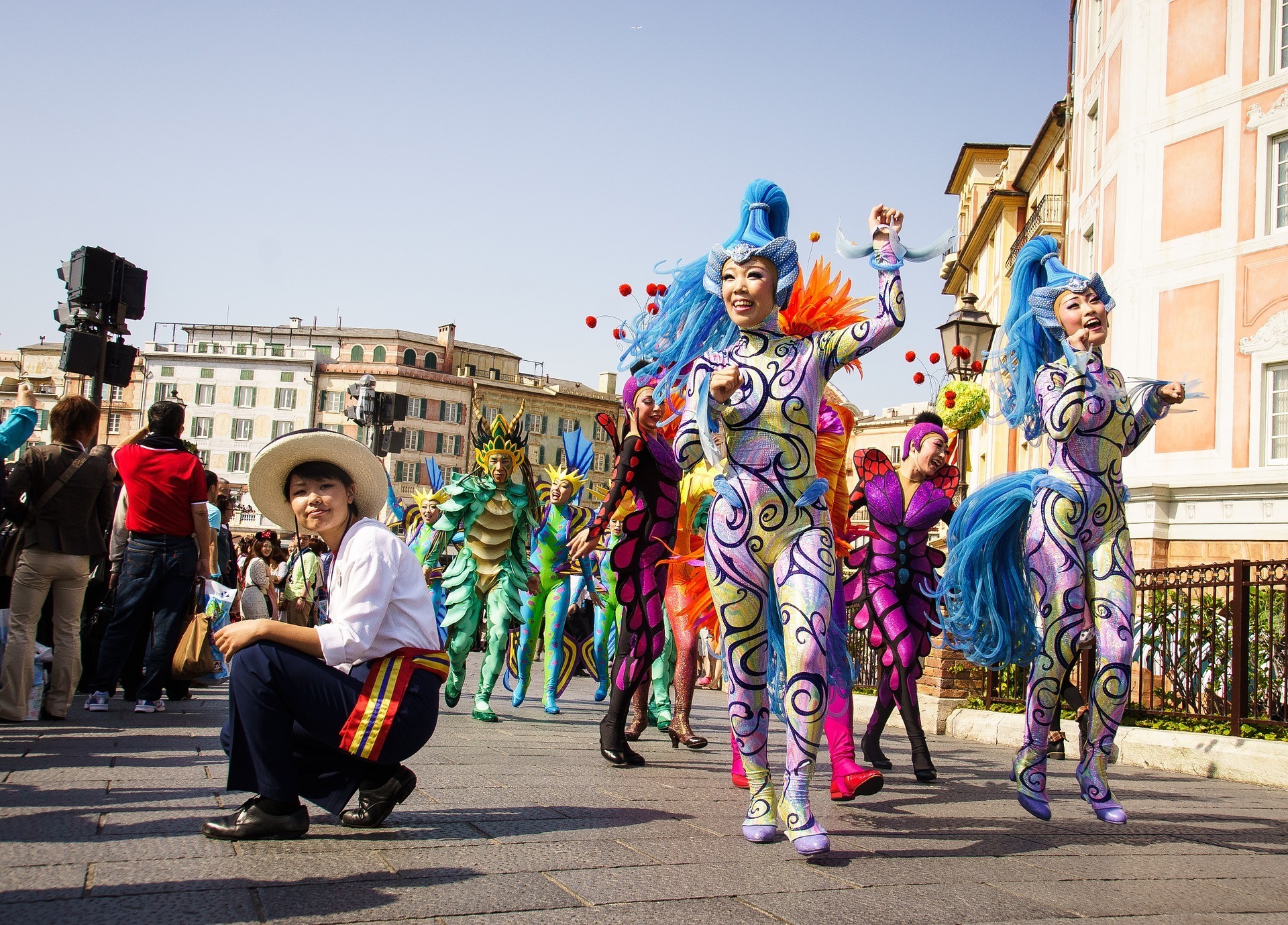
Tokyo is a safe place to travel to. There are so many other places in the world where you’ll be much less safe, but there are still things that you should be aware of when traveling around the city.
So here are our top safety tips for Tokyo so you’ll be properly prepared to take on everything the city throws at you.
- Learn about what to do in case of an earthquake – the threat of earthquakes in Japan is real and you’re going to want to know what to do if one hits
- Don’t take all your money and cards out with you – even though it’s a safe city, there’s still a chance of petty theft. You can also keep your goods safe with a security belt.
- Keep an eye on news reports and weather warnings – when the weather turns bad, it can affect flights and travel
- Steer clear of drugs – even smoking weed is (very) illegal in Japan and can carry a prison sentence
- Tokyo can get SUPER hot – during the summer months, temperatures can soar in the center of the city. Keep yourself safe and limit your time outside in the middle of the day. Stay hydrated and wear your bloody sunscreen!
- Know how to stay safe during typhoon season – you’ll want to know when a storm is going to hit and how you can prepare and stay safe
- Be careful of nature – nature can be dangerous anywhere. The mountains surrounding the city are great for hiking, but take normal caution, being aware of the venomous bugs and snakes that live out there
- Get your head around the culture – Tokyo is a busy place but everything has a specific way of functioning. Read up on how restaurants work and understand about how you should behave so you don’t stick out too much
- Don’t behave like a drunk foreigner – there’s amazing nightlife in the city but crowds of people getting stupid drunk and shouting around the streets is a rare sight
- Ignore touts for bars – these kinds of bars are VERY scammy and you might even end up with a bar bill of over $1000
- So keep an eye on your drink – men AND women should watch out in the more shady bars for drink spiking, this can end up with scammers running up bills on your credit card with you being too incapacitated to catch the scam
- Your card won’t work in most ATMs – even though Japan is still a cash-based society, your foreign card will only work in convenience stores and at Japan Post ATMs. Make sure you get enough out and don’t leave yourself stranded without money
- Learn some Japanese – it’s seriously NOT that hard to learn how to say “thank you” or even to order a drink, Tokyo will open up so much more to you if you try to learn the lingo. And on the subject of talking…
- Don’t talk so loudly! – foreigners in Tokyo with loud voices stick out a mile off and seem really jarring. Speaking loudly can also seen as a sign of aggression in Japan
- Watch out for rush hour if you have luggage – rush hours on Tokyo’s public transport is notoriously busy and travelling during peak hours with your backpack or suitcase is a big no.
- Take care on train platforms – many of the train platforms in Tokyo have barriers alongside the track, but some don’t and when it gets busy people actually fall on the tracks which doesn’t end well…
- Watch out if you’re on your smartphone – this might sound stupid but people in Tokyo have actually died from using their smartphone whilst walking.
- Keep an eye out for cyclists – it’s a really safe city to get around on a bike because so many people cycle on the pavement, but accidents can occur when they appear out of nowhere or skip traffic lights
- Roads are really safe but beware of cars at junctions – even if the light is green for you to cross a road, make sure cars turning into the road can see you. People have been seriously hurt by cars that haven’t seen them crossing.
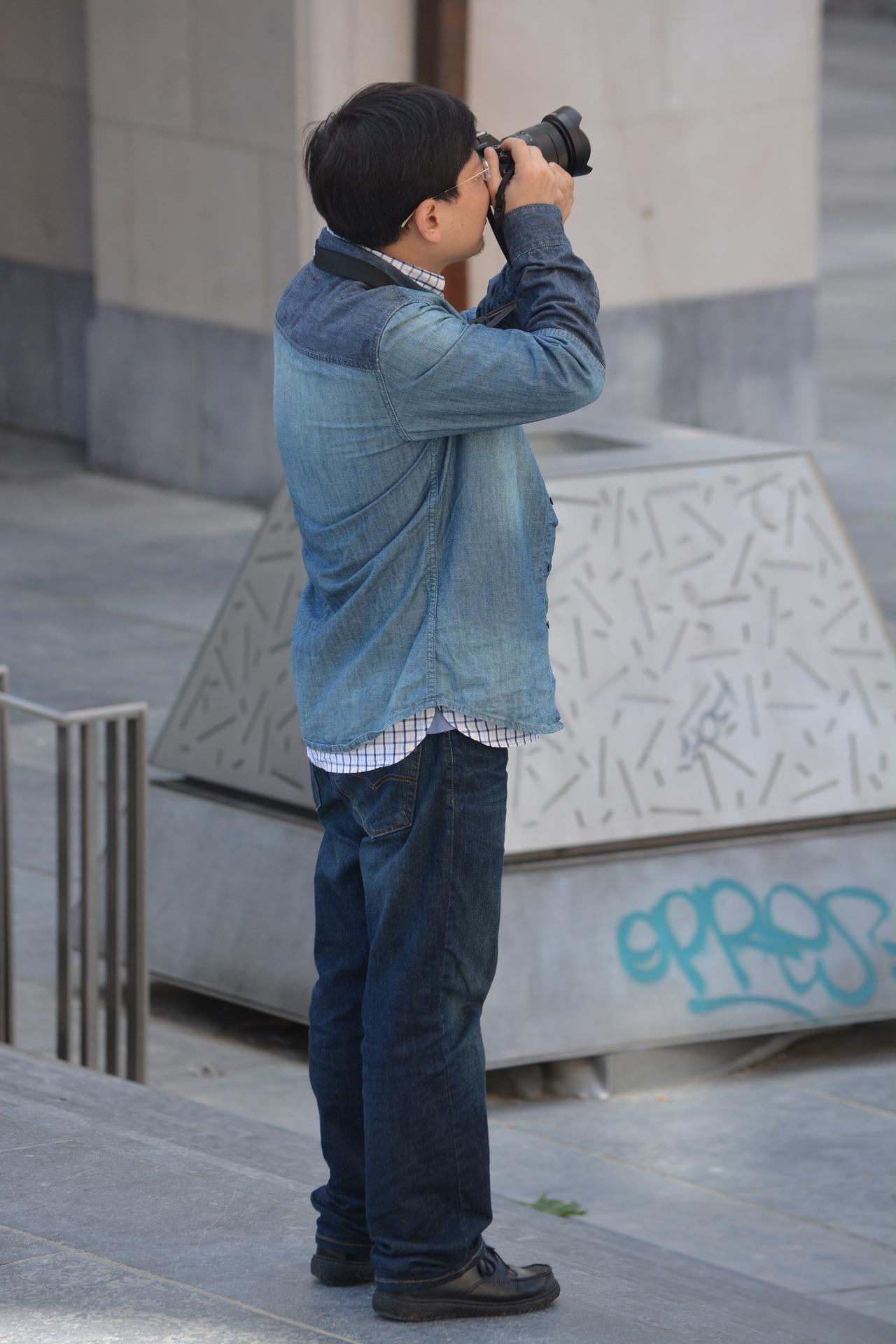
It’s pretty easy to get lonely when you’re traveling by yourself. And in Tokyo, that can definitely be a problem. In fact, we wouldn’t REALLY say that it’s the best place to travel alone. It can be pretty hard finding your feet, so here are some solo travel tips for Tokyo.
- Tokyo’s hostels aren’t always the most social places in our experience. Really. So if you are looking for somewhere you can make a few travel buddies to hit up the city’s best sights with, then definitely read reviews. This will help you find somewhere that’s most fitting for what you want.
- But if you don’t care about being social, that’s fine – it’s up to you. Capsule hotels in Tokyo are perfect accommodation geared towards solo travelers seeking a unique and independent experience.
- Find a local person. You can find people on Instagram or even embark on a spot of couch surfing to find yourself a real Tokyoite. People are pretty eager to practice their English and will enable you a chance to see a different, more local side to the city. This is something we’ve really enjoyed during our time in Tokyo.
- Speaking of English, it’s not widely spoken. What you shouldn’t do in Tokyo speak English at everybody. Learning some Japanese will get you a long way.
- Don’t be afraid to eat by yourself. People love food in Tokyo, and being by themselves doesn’t stop them from enjoying whatever it is they want to eat.
- In fact, don’t be afraid to do ANYTHING alone. Many people in Tokyo do a lot of things alone. People are very independent. Even if you want to go and hike up nearby Mount Takao, you’ll most likely find at least a few others doing it by themselves, too. It’s totally normal.
- Get yourself a Japanese SIM card. Tokyo can be confusing as it is, so having Google Maps to help you navigate the trains is super helpful. Wi-fi is surprisingly NOT easy to come by in the Japanese capital, so data is honestly going to be a lifesaver. You’ll also be able to use Google Translate. Another lifesaver.
- If you need help; if you’re lost – anything – head to the koban. These police boxes are everywhere and are usually staffed with at least one police officer. They’ll be happy to help and have sorted us out a good few times!
- Don’t push yourself. There is enough to do and see in Tokyo to fill several lifetimes. So when you’re by yourself, don’t feel like you have to do everything. In our experience, Tokyo is somewhere you want to just soak in.
As we mentioned, life in Tokyo can get a little bit lonely. Use that data on your phone to keep in touch with people back home. If you’re an independent person who likes your own time, you’ll LOVE it!
Is Tokyo safe for solo female travellers?
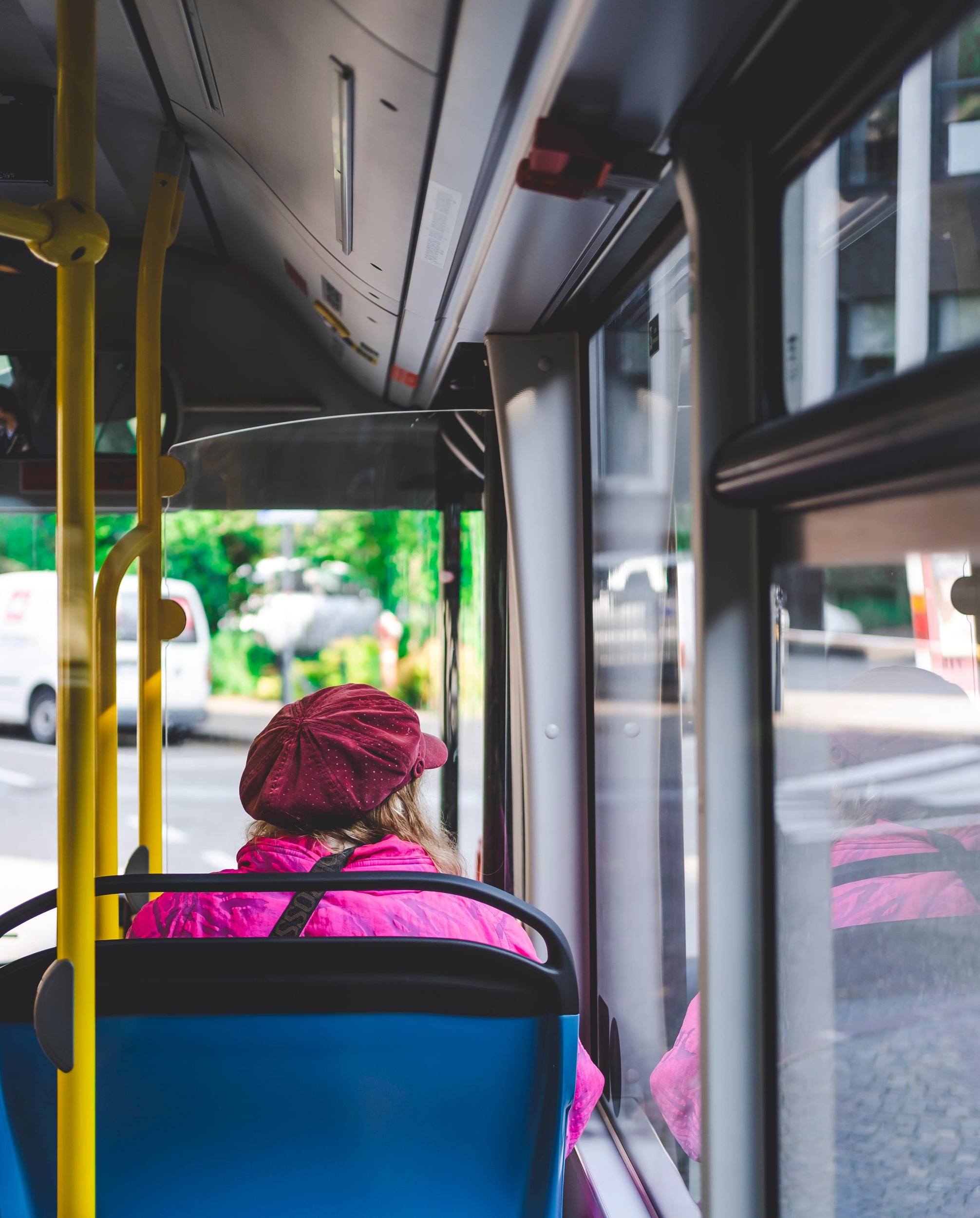
Toyko is safe for solo female travelers. But with all of that in mind, women anywhere in the world are more at risk than men. That’s pretty much how it is at the moment. There are also a few quirks about Japanese society that you might find… peculiar. Definitely.
And for such a developed nation, gender equality in Japan is LOW. With that awful bombshell, here are some tips for solo female travelers visiting Tokyo…
- Women in Tokyo dress how they want to dress. But there are a few things you might want to keep in mind. Look around at how other women are dressed. For example, short skirts are normal – revealing your stomach with a crop top, or showing cleavage, is NOT normal. You might get some stares.
- Getting hassled in the street isn’t a regular occurrence. But you do get some weirdos. Especially in more central areas. Ignore guys who shuffle up to you and try odd pick-up lines – they’ll be wanting you to come to a ‘Host Club’, where you pay for men’s drinks in exchange for attention.
- There are women-only carriages on Tokyo’s rail networks in rush hour for a reason. And that reason is chikan, or inappropriate touching. Granted, when everybody’s squished in a carriage, being up against someone can’t be helped. But using this as an opportunity to grope people is something that happens. Avoid traveling during rush hour on the trains if you’d like a little more comfort.
- And if something does happen when you’re on the train, make it known. This is a country where people don’t make a fuss. So get loud, point at the person, yell chikan at the guy in question. This will put attention on them and they won’t like that at all.
- There are cool hostels in Tokyo that boast not only female-only dorms but whole female-only FLOORS. This will give you even more peace of mind when it comes to avoiding potential male oddballs.
- Toilets in Tokyo are everywhere and they’re super clean. There are even special areas for women to do their makeup or even platforms in cubicles that you can fold down so you can take your shoes off if you need to get changed. The makeup areas are often full of other women doing their hair or makeup. It’s cool!
- Don’t expect to find much in the way of tampons on your travels around Tokyo, or see breastfeeding women. These things aren’t the norm – yet. Our team found packing something like a mooncup super useful instead.
- And hey, don’t be afraid to head to an onsen if you’re traveling solo. This means fully naked hot spring bathing. But don’t worry: these are social spaces for women in Tokyo and can be a good place to practice your Japanese if you feel brave enough!
Even if you feel safe in Tokyo, don’t lose your senses. By that we mean don’t surpass your alcohol limit – and watch your drink at dodgy bars. Or, you know, just avoid dodgy bars altogether. Tokyo is still a big city. And big cities CAN be sketchy. Use your instincts and avoid things that seem off.
Is Tokyo safe to travel for families?
So, yes. Tokyo is safe to travel for families.
There are a ton of family-friendly attractions dotted around Tokyo that’s going to make visiting the Japanese capital a dream for many children. especially if they’re into manga and anime.
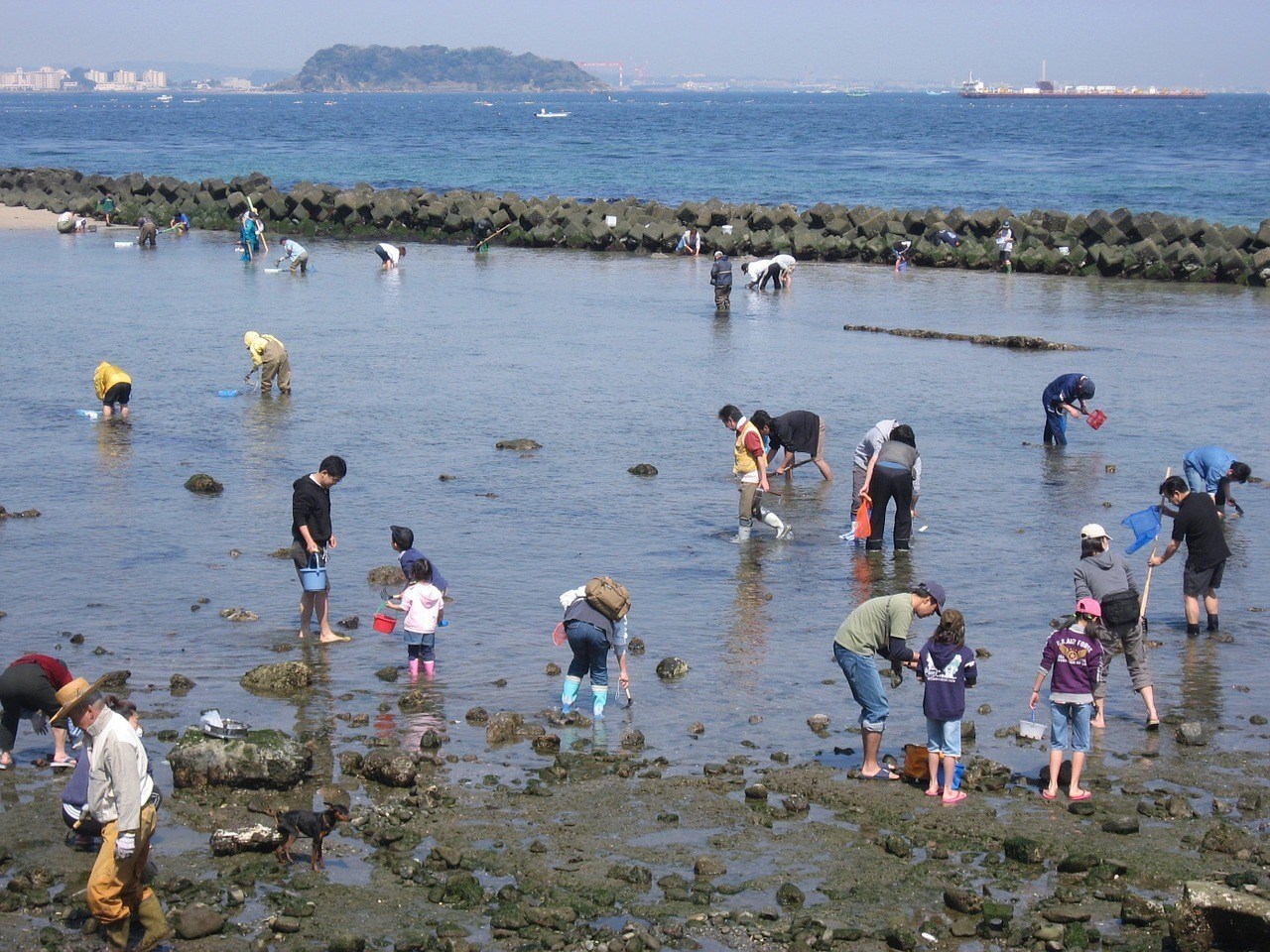
We’re talking the Ghibli Museum – dedicated to all things Studio Ghibli. We’re talking the countless arcades packed with hundreds of different videogames, like Joypolis. And we’re talking Disneyland Tokyo.
Then there are all the cool temples you’ll get to see. Huge shrine complexes like Meijijingu. Many, many, many playgrounds and parks to have fun in.
But, there are some things to think about if you’re planning to visit Tokyo with kids in tow. It is a BIG city after all.
Tokyo is very clean. You’ll even see people cleaning the handrails of escalators. But make sure you keep clean, too. Use the oshibori – the cloths and towels they give you in restaurants before you eat to make sure your hands aren’t grubby.
And you might want to take hand sanitizer with you – there’s not always soap in the toilets to wash your hands with.
But make full use of the facilities available in public toilets. There are even fold-out baby chairs in cubicles so your baby can stay safe whilst you’re doing your business.
What you’ll be most worried about is navigating the metro system when it’s busy. Make sure your children stay close to you as it can be easy to get separated in the huge crowds at stations like Shinjuku. If possible, avoid rush hour completely.
Is it safe to drive in Tokyo?
Whilst it IS safe to drive in Tokyo… there really is no point.
It’s all a little bit confusing. You’ll need to have some knowledge of Japanese road signs. There are one-way systems all over the place.
The network of trains that lace the city are more than enough to help you get around the city. They connect so many different corners of Tokyo that it’s not worth the hassle.
It’s actually pretty expensive to rent a car in Tokyo, too. In fact, the city can be quite expensive overall. And you’ll have to get used to driving on the left if you don’t already do so.
Parking is super expensive as well and annoying to try to find – this isn’t the sort of place where you can just park up on the street. And where you can find street-side parking, the meters have high rates. (In general, Japan can be expensive to visit.)
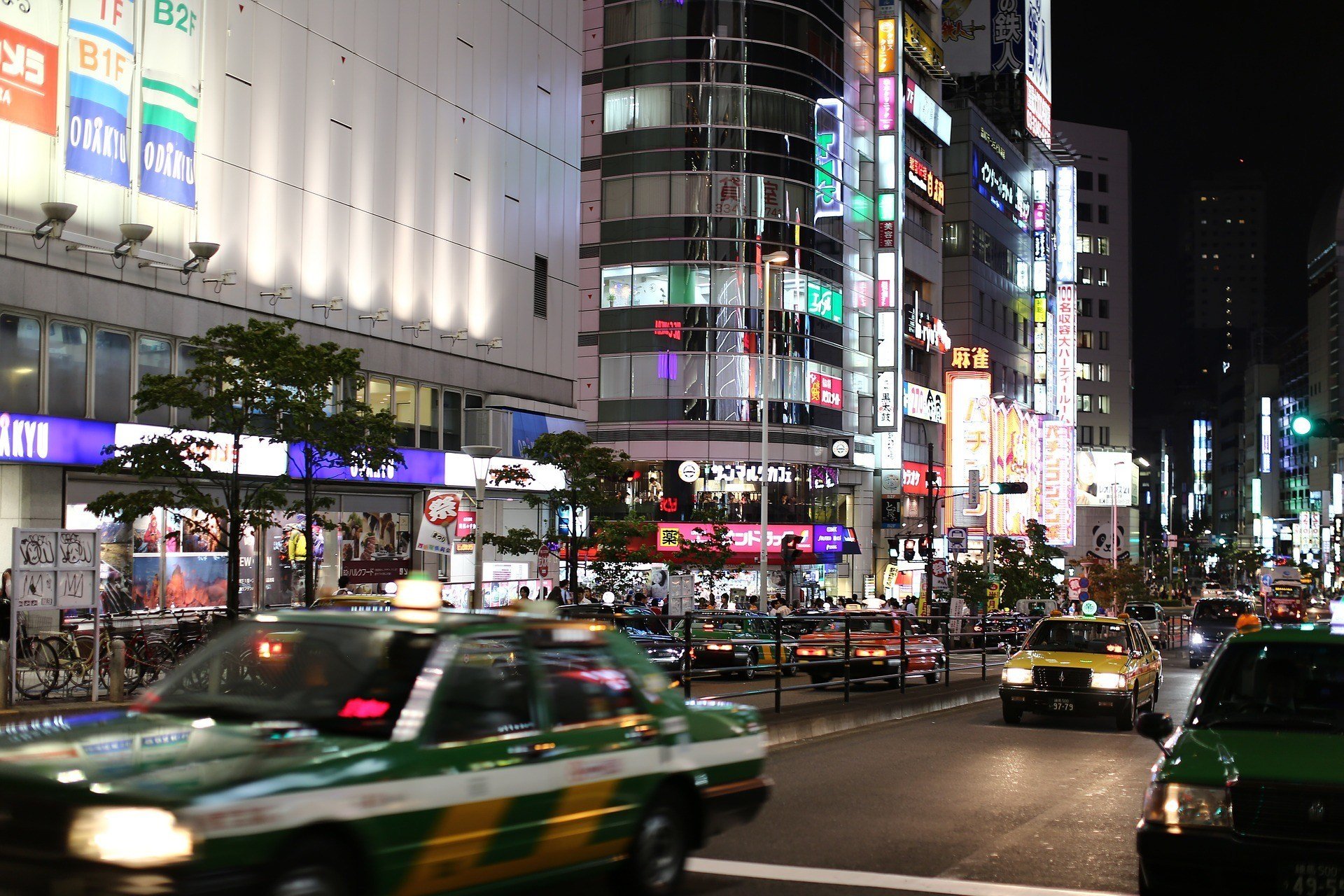
It can get very congested in rush hour, too. The streets are full of cars queuing up to get from A to B. So we would say just avoid it.
Basically: it’s safe for locals to drive, but for visitors, we’d prefer to avoid it altogether and to be honest, for this reason we’ve not got any experience in this department.
Is Uber safe in Tokyo?
Uber is safe in Tokyo, but you won’t really want to use it.
That’s because Uber in Tokyo is actually more expensive than taxis. That seems backward, doesn’t it?
But of course, it’s safe. Like Uber around the world, you can track the journey, you don’t have the language barrier, and you know the license plate and make of car you’ll be getting into. It’s safe all right. And you won’t even have to worry about having spare cash on you since you pay in-app.
Uber isn’t really a viable option, especially for budget travellers, though and we usually prefer to use the metro.
Are taxis safe in Tokyo?
Definitely.
Taxis in Tokyo have a reputation for being super clean. And the reputation is true. Sometimes the taxi drivers even wear white gloves and peaked caps. This is not a myth.
You can get your hotel or hostel to call a taxi for you – handy if you don’t speak Japanese. But you might have to pay extra for this service.
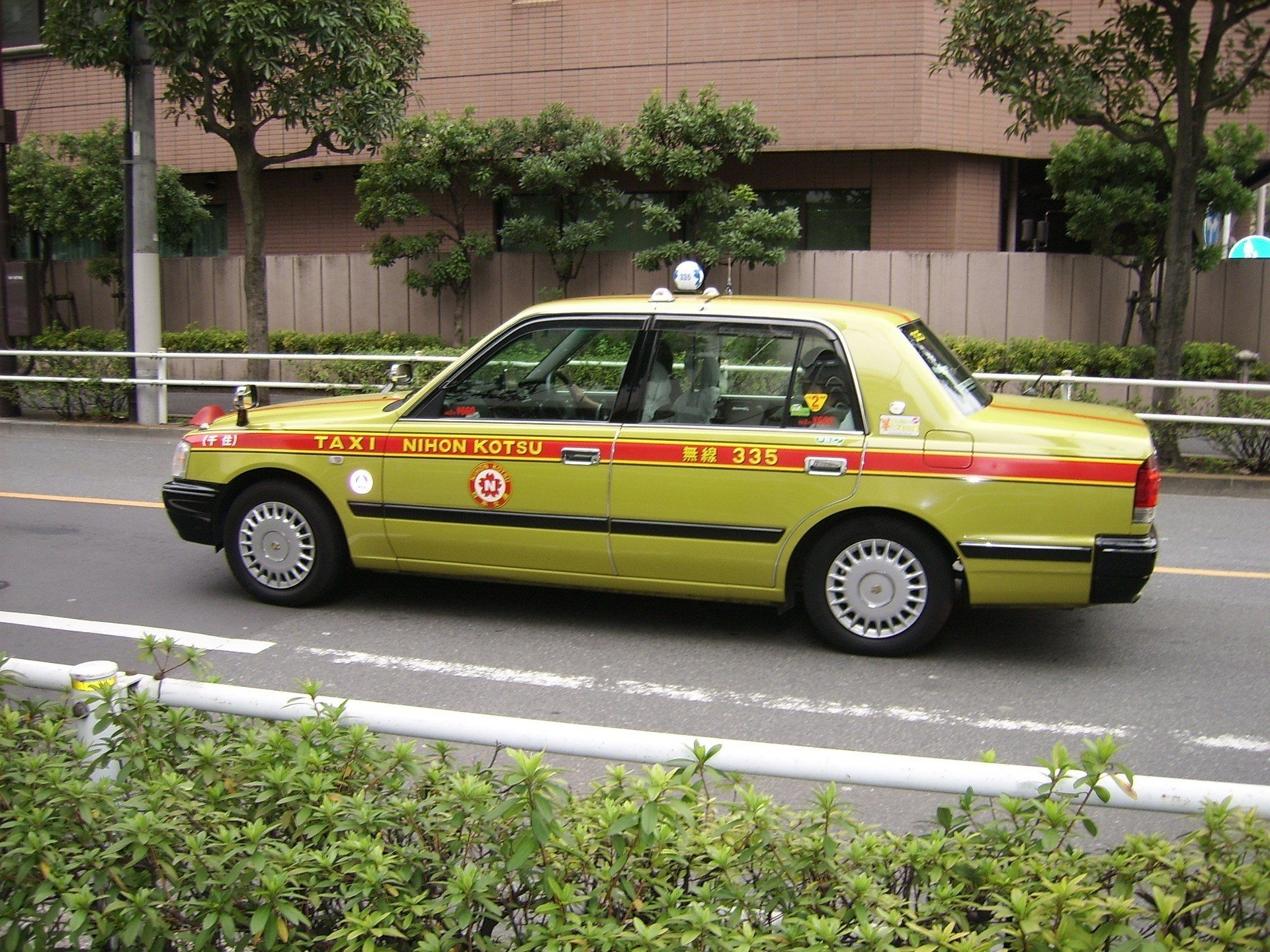
The cheaper way to get yourself a taxi in Tokyo is to simply hail a taxi. Otherwise, you’ll find plenty of taxis milling around at taxi stands outside shopping malls, some tourist sights, and near some larger train stations.
Another way to grab a taxi if you’re having trouble hailing one is to use an app like Japan Taxi or the popular Line Taxi. This will find the nearest taxi to you, who will then make a beeline for you if you do indeed end up summoning it your way.
You can spot licensed cabs a mile off. These have green number plates instead of the usual yellow and white. You can see if it’s empty or not by seeing if the empty car sign is red on the dashboard. If there’s someone in it, it’s green. Read that again, because I fully expected it to be the other way around.
Whilst taxis are safe in Tokyo, they ARE expensive. We would say they’re about on par with, if not more expensive than, London’s taxis in our experience.
Is public transportation in Tokyo safe?
Public transport is super safe and we love using it to explore Tokyo each time we visit.
The trains are cutting-edge stuff. You know this of course – you’ve seen it on TV. And the train network goes practically everywhere you could ever dream of going all across the capital – and beyond.
And because of just how large it is… It can get a little bit confusing. However, we’d rather be confused than worried about pickpockets.
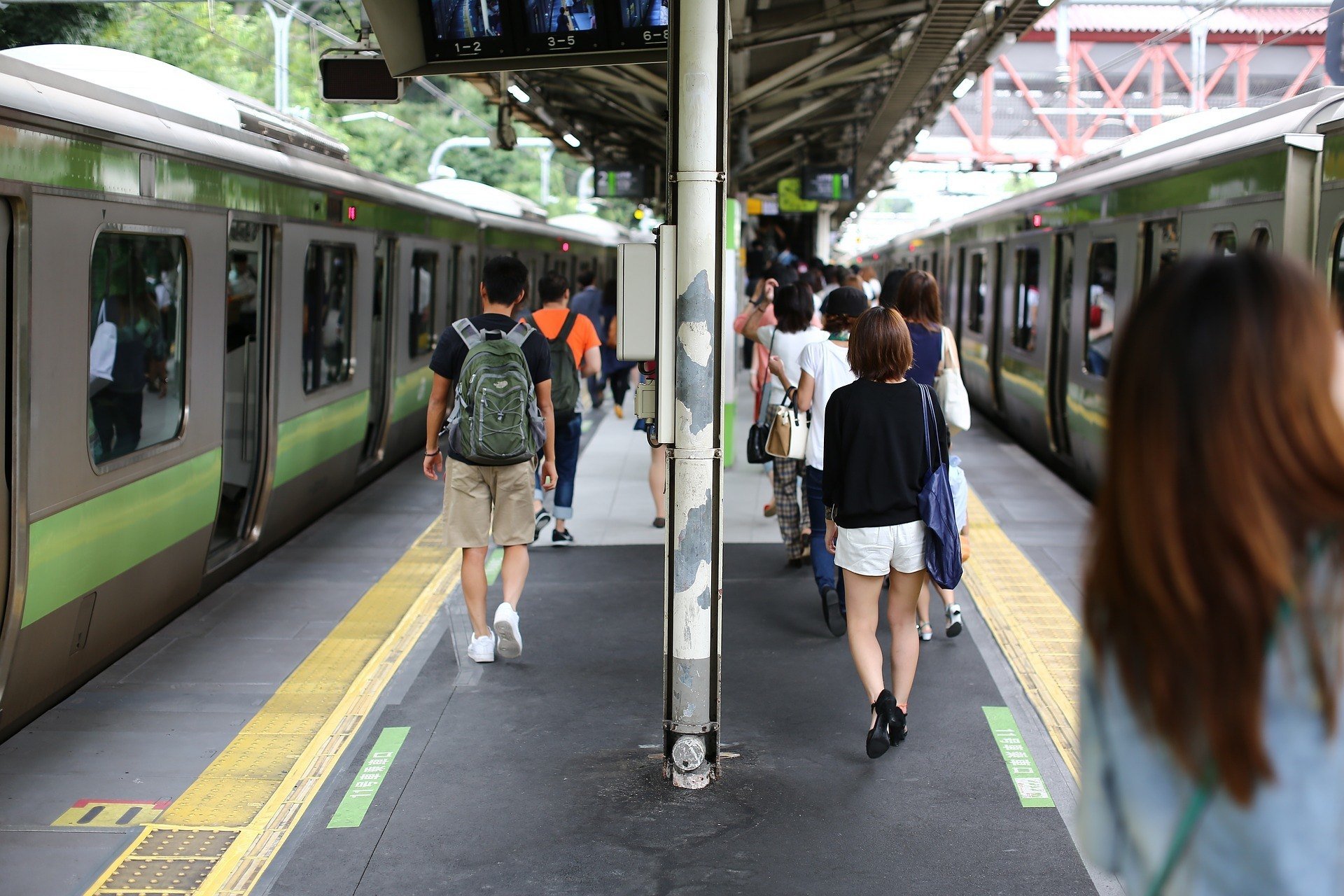
But let’s just put that complexity into numbers for you: it’s a bundle of 10 different railway companies operating over 60 lines. We’d recommend that if you need to get anywhere quickly, make sure you plan ahead.
Having data can be very handy, too. If you miss a connection or need to know when the correct train is coming, Google Maps will show you the quickest, cheapest or most hassle-free route.
Tips for Using the Train in Tokyo
We’d recommend that you get an IC card. These come in two forms in Tokyo, Suica or Pasmo. Both can be purchased at ticket machines. If you’re stuck, ask a station attendant for help. At more touristy stations, staff are strategically placed next to ticket machines to help people buy tickets.
There are a number of different trains. Local, limited express, express, and commuter express. Some may skip your stop completely – the best way to avoid this is to get the local train where possible. These will let you off at any stop.
Don’t worry: there are many announcements both in stations and on trains in English so you’ll be unlikely to miss your stop. Just remember to position yourself close to the doors if things start to get busy, we’ve missed our stop by being trapped in the centre of the carriage before!
You’ll need to be careful in rush hour. Follow the arrows in stations and try not to get in people’s way. The flow of commuters at these times is huge and quick. It can be a little overwhelming. The trains sometimes run at 200% capacity. That’s BUSY.
Other tips for Public Transport in Tokyo
A little bit of Japan travel tips…
- Stand to the left on the escalators in Tokyo
- Don’t talk on your phone
- Definitely don’t EAT on the train, especially the metro (it’s ok on long-distance trains)
- Avoid sitting in priority seats meant for older, pregnant, injured or differently-abled passengers
- It’s all about being QUICK. Try not to hold people up at ticket gates
The last train home on a Friday can be pretty rowdy… and crowded. If you’re from a city anyway, you’ll be used to this and being Tokyo we’ve found it to be pretty fun rather than sinister!
Buses are everywhere. These traverse routes that trains don’t tend to. However, these aren’t usually used by tourists. That’s because they can be a little bit confusing to work out. If you’re going to give it a go, get on at the front and use your IC card to tap in. Remember, locals are super friendly so don’t be afraid to ask for help!
But we’d say stick to the trains. Buses can get caught in traffic, after all. It’s the way we’ve always made our way around Tokyo.
Is the food in Tokyo safe?
Yes, yes, yes. The food in Tokyo is safe. Hygiene standards are high in the Japanese capital, as they are throughout the entire country. The problem you’re going to have with food in Tokyo is simply deciding where in the metropolis to eat! It’s one of the many things we just love about this city.
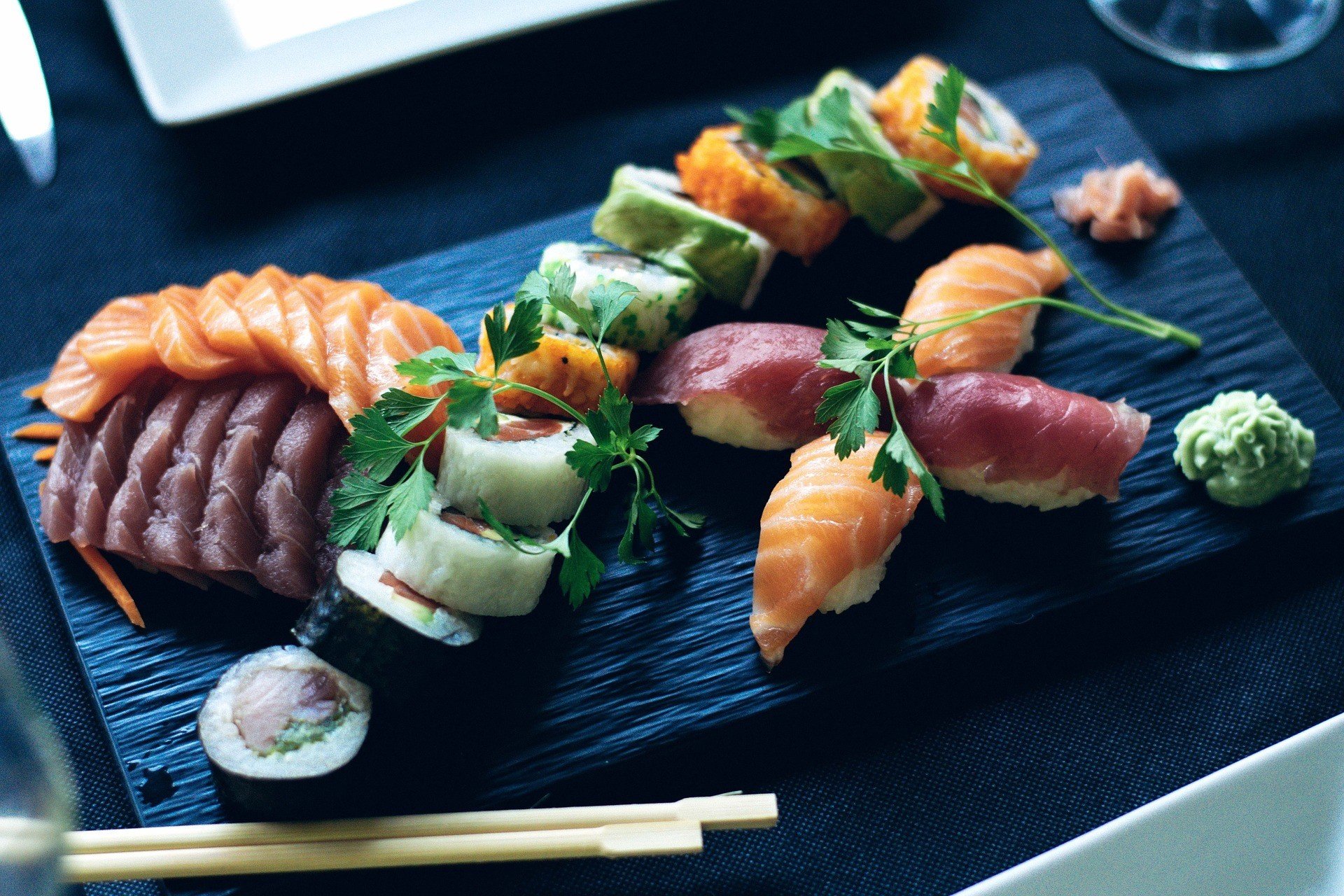
Of course, Tokyo is a foodie haven. It boasts the most Michelin starred restaurants in the world. Those are some pretty good credentials. But there ARE some things that you might want to consider, so here are some tips for eating your way around Tokyo…
- Watch out for chicken sashimi. Some stomachs might be able to handle it, but if yours is particularly delicate, then you might just want to avoid. To be honest, raw chicken is probably something you just shouldn’t be touching.
- If you aren’t used to things like raw fish and shellfish, ease yourself in. You might even be allergic to something that gets served up – if you’ve never had it before, you wouldn’t know.
- Try to avoid tourist restaurants with all-English signage. Food quality and hygiene standards will be lower.
- Do not avoid convenience stores or konbini as they are called in Japanese. You can get a LOT of seriously tasty food from these places. 7-11, Lawson’s and Family Mart are “the big three”. Even locals get stuff from these places. Start with onigiri (stuffed rice ball) and tell us it isn’t tasty. Even the sushi from here is decent.
- Don’t expect to find street food stalls like you would in other Asian countries. They’re not very popular unless you happen to be attending some sort of matsuri (festival). With that in mind, if you find yourself in a place that looks like a food court – usually near or in a station – with a lot of cooked food and other tasty bits on display, definitely feel free to buy it, but don’t walk around and eat. It’s proper to sit and enjoy your meal.
- Now for fugu, which is pufferfish. This can kill you. It’s supposedly not even an amazing taste so we’d stay clear!
- This tip is by no means a must, but it will open up your culinary experience: learn just a little bit of Japanese. Reading some basic characters will do. Or take Google Translate out with you when you dine. If you’re a vegetarian, ask for things niku nashi – that’s “without meat”. Servers and chefs are likely to figure out a way to fulfill the request.
But basically, in general, the food in Tokyo is not only amazing, but amazingly safe, too. You won’t have to worry about getting ill from any lack of sanitation here. The only thing that could get in your way is your stomach sensitivity.
Can you drink the water in Tokyo?
Yes. You can. Feel free to fill up your water bottle to take it with you and cut down on plastic!
But it isn’t very tasty. It’s a little bit… chlorine-y from our experience.
If you don’t mind that, go ahead. If you are a bit of water connoisseur, then you can always bring the GRAYL GEOPRESS to further clean the water and brighten the taste a bit.
Is Tokyo safe to live?
It is very safe to live in Tokyo. Of course, the longer you stay in Tokyo, the higher the chance you’re going to at least feel an earthquake.
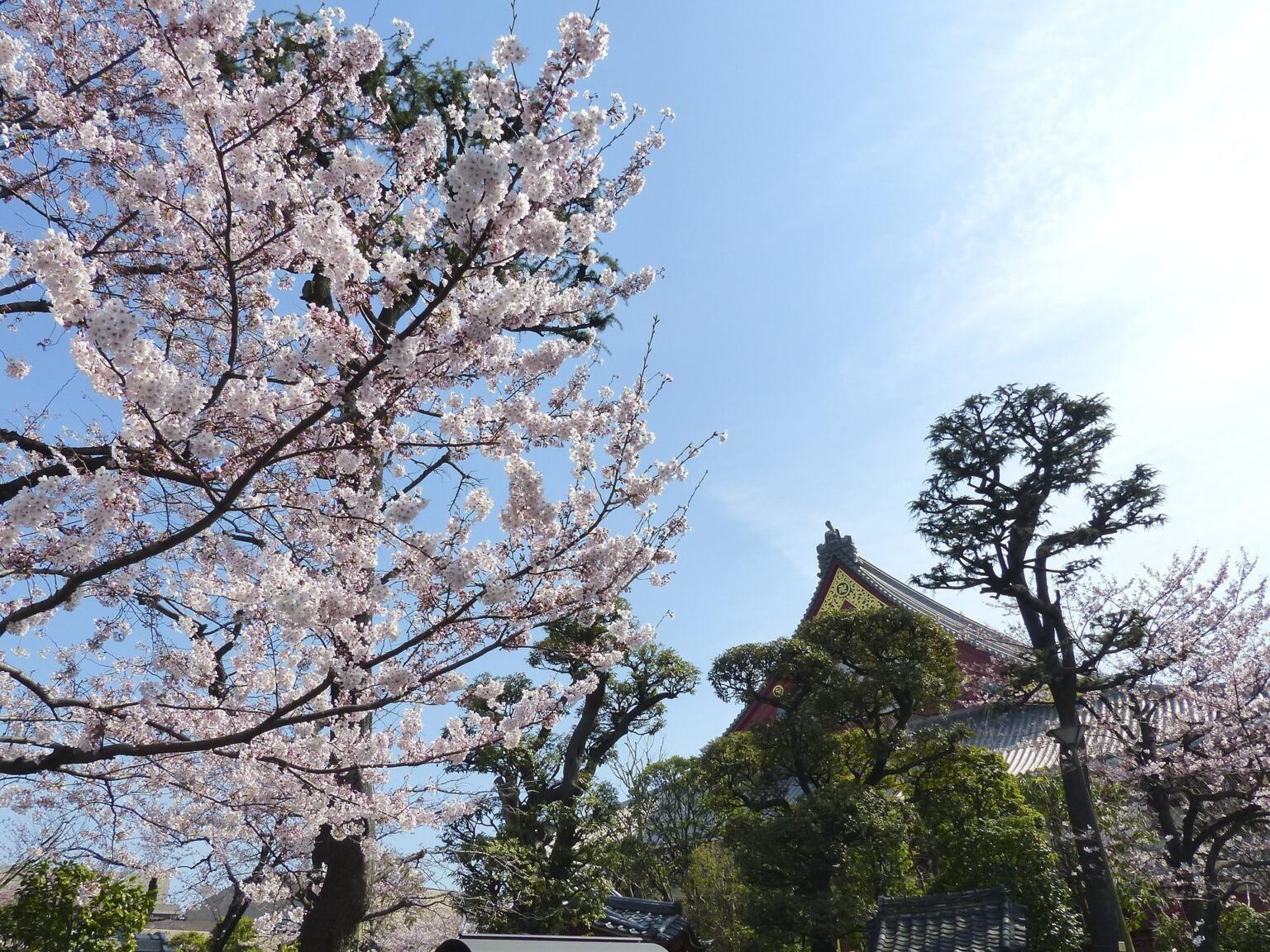
You should get yourself an earthquake app. Get onto the app store and download one like Quakefeed or Japan Shelter, which gives you directions to your nearest shelter in the event of a natural disaster. Another thing to do is simply to read up and know what to do if a big earthquake hits. This is vital information.
Tips to Help You Live in Japan
The next major thing about living in Tokyo is learning Japanese.
That’s par for the course about living in ANY country. If you’ll be there a long time, why wouldn’t you?
Knowledge of Japanese will open up Tokyo for you. Asking for directions, making small talk, ordering food, reading menus and signs… It’s all going to be helpful.
In terms of safety, Tokyo is definitely a safe place to live. Crime is almost nonexistent. Violent crime even less so. What’s going to cause you most bother is maybe someone stealing your bike. Or your umbrella.
One thing that might be a little bit tricky is just… fitting in. In Tokyo, since it’s a big tourist focus, you may be frustrated to constantly be seen as a tourist. Even people who have lived here for decades find themselves (amongst other annoyances) spoken to in English, though they are fluent in Japanese.

A new country, a new contract, a new piece of plastic – booooring. Instead, buy an eSIM!
An eSIM works just like an app: you buy it, you download it, and BOOM! You’re connected the minute you land. It’s that easy.
Is your phone eSIM ready? Read about how e-Sims work or click below to see one of the top eSIM providers on the market and ditch the plastic.
Grab an eSIM!Is it safe to rent an Airbnb in Tokyo?
Renting an Airbnb in Tokyo is a great idea. And it’s perfectly safe, as long as you read the reviews. Staying at an Airbnb during your trip will also open up new possibilities and options to experience the country. The local hosts are known to take great care of their guests and give the absolute best recommendations of what to do and what to see. Local knowledge always goes a long way, so be sure to reach out to your hosts if you’re unsure about how to fill up your Tokyo itinerary!
On top of that, you’ll stay safe with the reliable Airbnb booking system. Both hosts and guests can rate each other which creates a very respectful and trustworthy interaction.
Is Tokyo safe for LGBTQ travellers?
For this topic, we consulted Sebastien and Stefan over at Nomadic Boys about their experience as gay travellers in Tokyo. They’re experts in travelling as an LGBT couple and had this to say about the city:
“Absolutely! As a hub for queer culture in Japan, Tokyo is super safe for all LGBTQ travellers. There is a vibrant gay scene in Shinjuku’s Ni-ch?me (Area 2), which is famous for having the world’s highest concentration of gay bars! There are over 300 crammed together, with something to suit everyone, whatever you’re into. Some of the best ones to look out for include Arty Farty, Campy! Bar and the AiirRO Café Bar. In terms of clubs, check out New Sazae – it’s the oldest and the most famous thanks to Freddy Mercury who used to come here often.
As a gay couple travelling in Tokyo, we had a fantastic time. We never experienced any problems anywhere and are confident that gay travellers in Tokyo will feel safe. The Japanese are extremely respectful of everyone and are super polite, particularly towards foreigners. We loved travelling in Tokyo and would return in a heartbeat!”
FAQ about Staying Safe in Tokyo
Here are some quick answers to common questions about safety in Tokyo.
So, is Tokyo Safe?
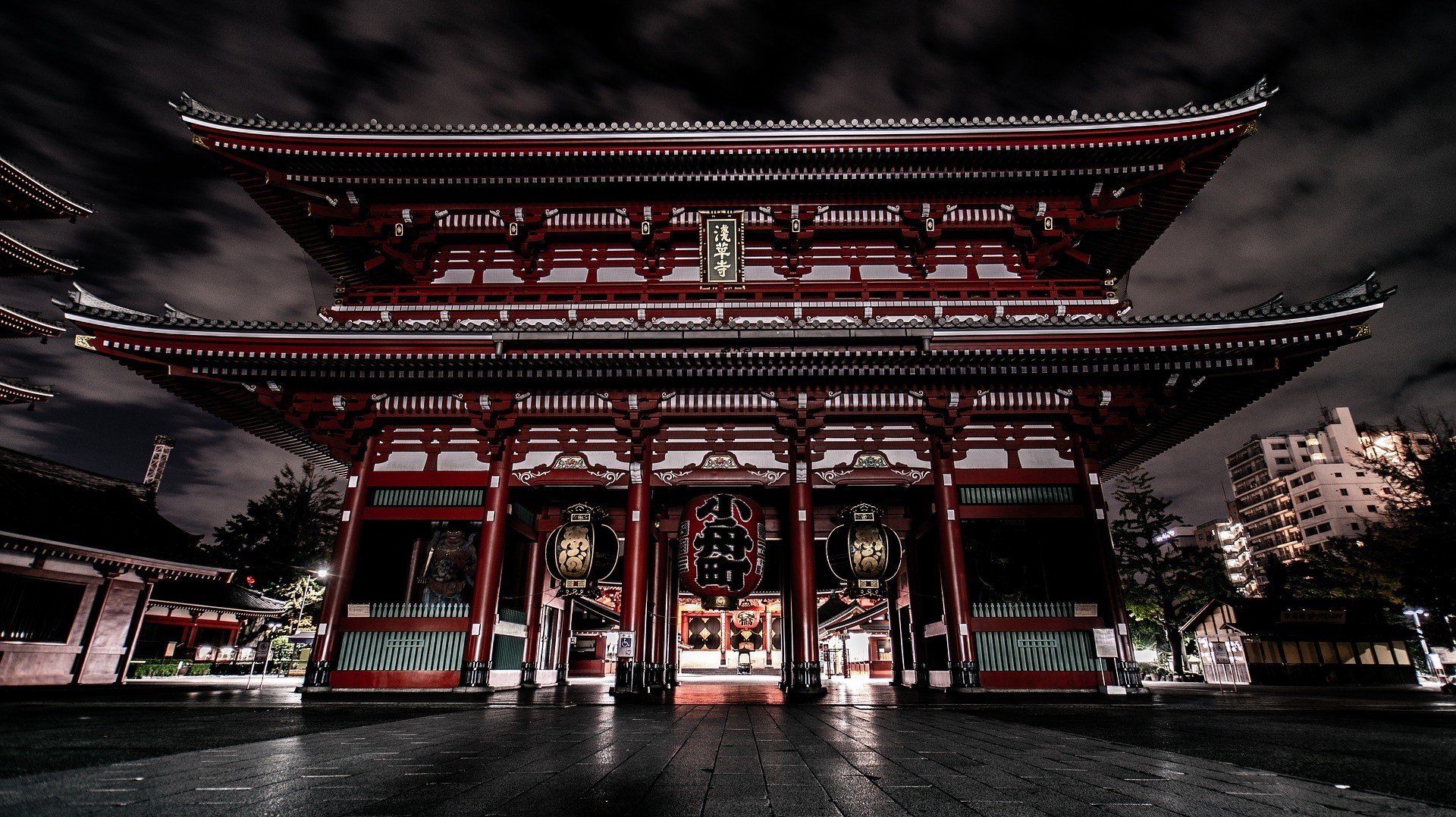
That is a clear yes! Tokyo is in fact one of the safest cities worldwide. The team has had some amazing experiences whilst visiting over the years and thankfully, no bad ones!
There may be some sketchy areas of the city, and there may be a few dodgy bars in these sketchy areas, where unsuspecting patrons are duped and scams are rife. But we don’t think this is different from any other city in the world. Especially capital cities, which typically see high numbers of tourists. Basically what this means is: wherever tourists go, so go petty crime and a whole world of scams.
That’s usually the case. But this is a minor thing in Tokyo. These things MAY happen. But the thing is, knowing NOT to follow a pushy tout to a touristy scam-ridden bar will keep you safe from that situation. So it sort of disappears from view. And then you’re left with Tokyo as a whole. And Tokyo as a whole… well, Tokyo is pretty dang safe. Aside from the odd bit of crime here and there, it’s safe.
The thing that’s REALLY dangerous about Tokyo is nature. Too hot, too windy, too rainy – can all make the city shut down. An offshore earthquake could even mean a tsunami. Both of these could potentially wreck the city.
It’s much more likely you’ll have a normal visit to Tokyo, which involves day-to-day safety, security, and idyllic tranquility mixed with big city madness.
Disclaimer: Safety conditions change all over the world on a daily basis. We do our best to advise but this info may already be out of date. Do your own research. Enjoy your travels!
Made it this far?
You get 15% OFF to book a place to stay!
Offer valid exclusively for Broke Backpackers 😉



